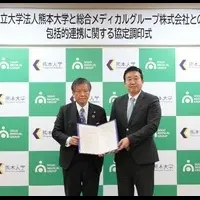
NeuroSense Therapeutics Unveils Promising Phase 2b Trial Results for ALS at AAN Annual Meeting
NeuroSense Therapeutics, a pioneering biotechnology firm focused on developing treatments for severe neurodegenerative diseases, is set to present groundbreaking results from the Phase 2b trial of its investigational therapy, PrimeC, at the prestigious 77th Annual American Academy of Neurology (AAN) Meeting on April 8, 2025, in San Diego, California. This presentation will take place during both the General Neurology and Late Breaker sessions, featuring new insights into the safety, efficacy, and biological mechanisms of PrimeC in treating amyotrophic lateral sclerosis (ALS).
Dr. Jeremy Shefner, a prominent figure in neurology and Chair of the Department of Neurology at the Barrow Neurological Institute, will present at 2:24 PM PST. His talk, titled "Shifting the Paradigm: PrimeC, an Oral Candidate for ALS, Demonstrates Safety, Efficacy, and Target Engagement in an 18-Month Phase 2b Trial," aims to showcase the considerable potential of PrimeC as a disease-modifying therapy. According to Dr. Shefner, this new data indicates that PrimeC not only demonstrates safety and tolerability but also highlights a significant reduction in ALS progression alongside various biomarker endpoints that illustrate its biological activity.
The multifaceted approach of PrimeC is underscored by an innovative combination of two approved medications. This oral formulation consists of ciprofloxacin and celecoxib, positioned to target the key mechanisms leading to motor neuron degeneration, inflammation, iron accumulation, and disrupted RNA regulation within ALS pathophysiology. By potentially inhibiting these pathways, PrimeC could alter the disease trajectory for ALS patients—a condition currently known for its rapid deterioration and lack of effective treatment options.
In the Late Breaker session at 6:15 PM PST, Dr. Jeffrey Rosenfeld, a distinguished Professor of Neurology and Associate Chairman at Loma Linda University School of Medicine, will delve into the role of microRNA modulation in ALS. His presentation, "MicroRNA Profiling and Iron-Related Modulation as Key Markers for Target Engagement in ALS Treatment with PrimeC," will shine a light on the intricate mechanisms behind PrimeC’s action in ALS and the significance of biomarker changes observed.
Dr. Rosenfeld emphasizes the revolutionary potential of PrimeC, stating, "By exploring pathways related to microRNA modulation and iron regulation, we gain a deeper understanding of how PrimeC interacts with critical disease targets. The promising results we’ve seen thus far not only improve our understanding of ALS but also elevate our excitement as we approach the next phase of clinical trials."
ALS remains a devastating diagnosis, with affected individuals typically facing complete paralysis and a limited life expectancy of 2 to 5 years post-diagnosis. In the U.S., over 5,000 new cases are reported every year, equating to an annual disease burden of a staggering $1 billion. Projections suggest that the prevalence of ALS may increase by 24% by 2040 in both the U.S. and the EU, highlighting an urgent need for effective therapeutics.
NeuroSense is committed to meeting this challenge head-on through its research and development of combined therapies that target multiple pathways involved in neurodegenerative diseases such as ALS. The data presented at the AAN meeting is expected to play a crucial role in shaping future treatment paradigms and providing hope to those battling ALS. As we await further developments, the upcoming presentation will undoubtedly mark a significant step forward in the fight against this relentless disease.
Dr. Jeremy Shefner, a prominent figure in neurology and Chair of the Department of Neurology at the Barrow Neurological Institute, will present at 2:24 PM PST. His talk, titled "Shifting the Paradigm: PrimeC, an Oral Candidate for ALS, Demonstrates Safety, Efficacy, and Target Engagement in an 18-Month Phase 2b Trial," aims to showcase the considerable potential of PrimeC as a disease-modifying therapy. According to Dr. Shefner, this new data indicates that PrimeC not only demonstrates safety and tolerability but also highlights a significant reduction in ALS progression alongside various biomarker endpoints that illustrate its biological activity.
The multifaceted approach of PrimeC is underscored by an innovative combination of two approved medications. This oral formulation consists of ciprofloxacin and celecoxib, positioned to target the key mechanisms leading to motor neuron degeneration, inflammation, iron accumulation, and disrupted RNA regulation within ALS pathophysiology. By potentially inhibiting these pathways, PrimeC could alter the disease trajectory for ALS patients—a condition currently known for its rapid deterioration and lack of effective treatment options.
In the Late Breaker session at 6:15 PM PST, Dr. Jeffrey Rosenfeld, a distinguished Professor of Neurology and Associate Chairman at Loma Linda University School of Medicine, will delve into the role of microRNA modulation in ALS. His presentation, "MicroRNA Profiling and Iron-Related Modulation as Key Markers for Target Engagement in ALS Treatment with PrimeC," will shine a light on the intricate mechanisms behind PrimeC’s action in ALS and the significance of biomarker changes observed.
Dr. Rosenfeld emphasizes the revolutionary potential of PrimeC, stating, "By exploring pathways related to microRNA modulation and iron regulation, we gain a deeper understanding of how PrimeC interacts with critical disease targets. The promising results we’ve seen thus far not only improve our understanding of ALS but also elevate our excitement as we approach the next phase of clinical trials."
ALS remains a devastating diagnosis, with affected individuals typically facing complete paralysis and a limited life expectancy of 2 to 5 years post-diagnosis. In the U.S., over 5,000 new cases are reported every year, equating to an annual disease burden of a staggering $1 billion. Projections suggest that the prevalence of ALS may increase by 24% by 2040 in both the U.S. and the EU, highlighting an urgent need for effective therapeutics.
NeuroSense is committed to meeting this challenge head-on through its research and development of combined therapies that target multiple pathways involved in neurodegenerative diseases such as ALS. The data presented at the AAN meeting is expected to play a crucial role in shaping future treatment paradigms and providing hope to those battling ALS. As we await further developments, the upcoming presentation will undoubtedly mark a significant step forward in the fight against this relentless disease.
Topics Health)










【About Using Articles】
You can freely use the title and article content by linking to the page where the article is posted.
※ Images cannot be used.
【About Links】
Links are free to use.